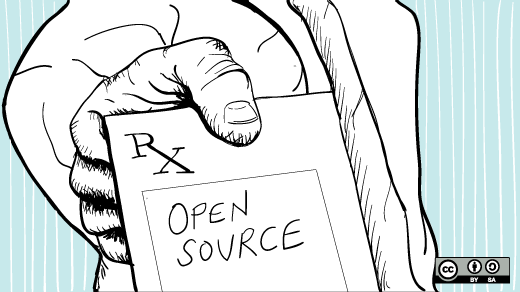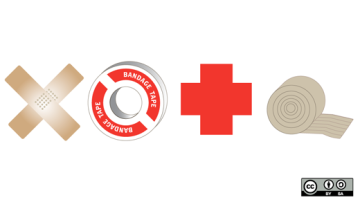When a novel coronavirus made headlines earlier this year, the world wasn't ready. In a short period of time, we all witnessed the consequences of having a global, interconnected economy unprepared for effective global collaboration. Indeed, this pandemic shed light on the under-preparedness of a truly global economy in a hyper-connected world. We didn't pay attention to the fact that a health issue in China could have an impact on both the real estate market in North Carolina and a shoe factory in Italy. Facing a pandemic, especially one that forced such extreme social distancing, required drastic shifts—both technological and social.
Many organizations, governments, and companies realized that facing a global pandemic like COVID-19 required new tools for tracking the spread of the virus. In order to keep up with this growing threat, decision makers around the world needed effective technological solutions for both tracking and contact tracing; we needed correct, up-to-the-minute data for making the best decisions. Facing this pandemic also required non-technical organizations to become technically capable quite quickly. Organizations were forced to rapidly build new solutions and uncover new ways of working. Facing this new global problem, the world realized that the digital transformation everyone has been talking about—but delaying until they had a budget—was now more important than ever.
Moreover, as we started to advise and work with different organizations around the world, we discovered that many of them were facing similar issues. As a last minute solution, many started building not only their own custom technologies but also their own custom organizational strategies for tackling this crisis. Quick but reactive approaches left many governments and organizations across the world building exactly the same solutions, often in isolation. Had they collaborated and shared what they were learning, they could have been building solutions with one another.
In other words: Had they been operating more like open source communities and truly open organizations, they could have found better answers sooner.
Building global solutions the open source way
For years, members of the open source community have been collaborating with one another on projects like these. We've been working together in remote environments since long before the pandemic hit. Our processes and policies, documented or not, have allowed us to push the technology industry forward at warp speed. In a mere 30 years, we've managed to make open source the standard for new software, and we've proven that global, remote, community-based collaboration can solve big problems.
Now the rest of the world seems to be following suit, adapting open principles and practices to create global change. By relying on the open source principles and code, we could truly build more effectively shared solutions and strategies that could help us all stop a global pandemic.
We see many examples of openness bridging collaboration gaps. The UK Government Digital Service is uniting citizens and government, helping the government to operate more effectively and efficiently. The UNESCO Global Network of Learning Cities is pushing city education policy forward, facilitating partnerships between member cities. Greenpeace is championing open source, and using it to help change mindsets and behaviors surrounding the climate emergency. Other coalitions have pledged to accelerate cooperation on a coronavirus vaccine and to share research, treatment, and medicines across the globe.
The world needs to shift the way it's approaching problems and continue locating solutions the open source way. Individually, this might mean becoming connection-oriented problem-solvers. We need people able to think communally, communicate asynchronously, and consider innovation iteratively. We're seeing that organizations would need to consider technologists less as tradespeople who build systems and more as experts in global collaboration, people who can make future-proof decisions on everything from data structures to personnel processes.
A new strategy: Cross-sector social innovation
Now is the time to start building new paradigms for global collaboration and find unifying solutions to our shared problems, and one key element to doing this successfully is our ability to work together across sectors. A global pandemic needs the public sector, the private sector, and the nonprofit world to collaborate, each bringing its own expertise to a common, shared platform.
The private sector plays a key role in building this method of collaboration by building a robust social innovation strategy that aligns with the collective problems affecting us all. This pandemic is a great example of collective global issues affecting every business around the world, and this is the reason why shared platforms and effective collaboration will be key moving forward.
Social innovation is an approach to social responsibility that requires a unique strategy for every organization, one directly linking their business goals and company values to the common good. The most effective way of implementing this strategy that requires fast-paced, social innovation is by embracing open source principles to enable collaboration across regions and sectors.
For example, PathCheck Foundation is doing this to quickly and effectively build a platform for shared needs. The PathCheck suite of open source software gives public and private sector organizations solutions for digital contact tracing and exposure notification, with the goal of containing COVID-19 and restarting the economy without sacrificing privacy. Started by Prof. Ramesh Raskar and passionate students at MIT—and now consisting of 1800 volunteers in partnership with many companies, and supported by a newly created nonprofit—PathCheck is a great example of how collaboration on an open source platform is a multiplier (being developed by a growing global, passionate, community of engineers, scientist, health authorities, designers, and contributors, and being used by many governments and organizations than any other service provider).
There is a way to tackle the pandemic and other global issues more effectively through shared platforms and open collaboration. Open source advocates have been doing it for a while, bringing open source to non-profits, governments and corporations, opening up education, connecting open design to global knowledge networks, building open hardware initiatives and structuring open government work. Members of the global open source community have already shown how the post-pandemic world could look—humane, transparent, collaborative, diverse.
Last but not least, the power of the individual aligned with a community—and the power of collaboration for solving issues that are important to all of us—are more powerful than we think. When companies, the public sector, and nonprofits work together, everyone can be part of a shared solution. An open source approach allows every individual to make an impact and contribute to projects using different, complementary skill sets.
Everyone can make a difference every day. And we can use the power of open source to ensure that difference changes the world for good.








1 Comment